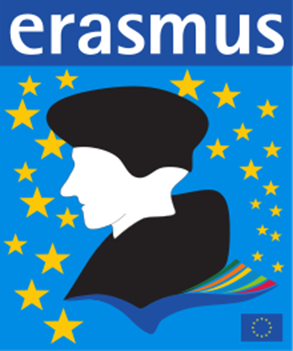What is the Erasmus Programme?
When talking about studying or interning abroad, the Erasmus Programme comes up a fair bit, but what actually is this organization? Who runs it? Who qualifies for support?
First things first, Erasmus was the name of a Dutch Philosopher, Desiderius Erasmus of Rotterdam, who travelled throughout Europe studying and exploring new theories, perspectives and subjects. Erasmus is also an acronym for European Community Action Scheme for the Mobility of University Students. Their mission was to develop a program that allowed students to enhance their education through diverse experiences in a variety of locations. In its first year 1987, 3,244 students were able to participate in Erasmus run student exchanges and by 2006 over 150,000 were able to partake. An interesting aspect of Erasmus is that teacher mobility is also promoted through the program. Erasmus grants have helped over two million students thus far with grants that allow them to fund their travel exchanges and further academic costs that may have hindered them from making the most of their opportunities.
In 2014, Erasmus+ or Erasmus Plus, was developed as a program that takes all of the European Unions current programs that focus on education, sport and training such as the Lifelong Learning Programme (Erasmus, Leonardo da Vinci, Comenius, Grundtvig), Youth in Action and five international co-operation programs (Erasmus Mundus, Tempus, Alfa, Edulink and the program for co-operation with industrialized countries).
The Erasmus experience
Erasmus offers many European students their first experience leaving home to live and study abroad. Similar to study abroad programs in the United States and Canada, the Erasmus program values the educational experience that students achieve as well as placing importance on developing community between the traveling students. The balance of academic and social components of this program makes it an amazing opportunity for first time travellers.
Get Involved
To get involved with an Erasmus program, the requirement used to be that you had to have at least one year of college-level academics under your belt, but now high school students are welcome to participate in the Erasmus program as well. With over 4,000 academic institutions spanning 33 different countries, the chance to explore, develop and meet other students is offered through the Erasmus Study Program or a minimum 3-month internship in another European country (Switzerland is not currently included in the Erasmus network).
One of the major goals for the Erasmus Program is that students who participate receive the equivalent credits from their original university, as long as all the previously agreed terms have been met. Erasmus also aims to provide a program where students do not have to afford extra costs that might make the program unaffordable, and they provide grants that can assist students in their costs of living abroad. Other ways that the Erasmus program suggest students to cut costs of living abroad and to exchange tips with other travelling students is by utilizing the various accommodation network websites that assist students with locating cheap housing options, such as Erasmusinn, FlatClub, or Erasmate.
The Erasmus Student Network (ESN)
In 1989, this student association was formed to foster student exchange environment that is both mobile and flexible. They hold a presence in 430 higher education institutions and aims to connect students to be able to support each other through around 29,000 ‘buddies’ that mainly participate on a volunteer basis to 180,000 every year. There are local, national and international levels, with the ever-present goal of providing an intercultural experience for students who are both in their home country as well as abroad.
ESN works to support both students abroad and students returning home. For students who have left home to study in a foreign country, especially those who are on their premiere independent abroad experience, the ESN takes note that many students find themselves feeling alone and look to combat this feeling of abandonment with various social activities like trips and events to bring people together and help them to explore their new environment. Mentor systems are also in place to help with academic and social integration. Students who are returning to their native country may experience reverse culture shock, and the ESN looks to help ease the transition by helping students keep in touch with their international connections as well as local sections that are run by former exchange students who understand what it’s like to go abroad and to return home.
When you subscribe to the blog, we will send you an e-mail when there are new updates on the site so you wouldn't miss them.




Comments